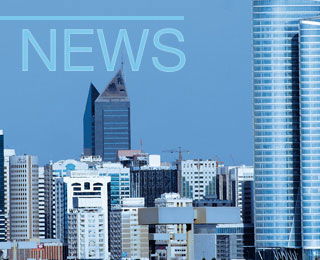Cementir's turnover for the first nine months of 2018 rose by 4.8 per cent to a restated EUR893.18m thanks to the full consolidation of Lehigh White Cement from the second quarter of this year and a higher Asia-Pacific turnover, but the eastern Mediterranean contribution was lower. EBITDA improved by 5.2 per cent to EUR163m and the trading was ahead by 6.2 per cent to EUR106.4m. After a net financial profit of EUR32.4m compared with a charge of EUR10.8m, the pretax profit jumped by 107.5 per cent to EUR138.8m from EUR66.9m, but before losses of discontinued operations the increase was 55.4 per cent. Net debt at the end of September was 36.7 per cent lower at EUR339.6m, adjusted for the sale of the Italian cement and concrete operations.
Adjusted grey and white cement volumes eased by 1.8 per cent to 7.52Mt. The aggregates tonnage improved by 5.2 per cent to 7.26Mt, while deliveries of ready-mixed concrete advanced by 4.8 per cent to 3.75Mm³. The workforce was increased by 2.9 per cent to 3093 compared with a year earlier.
In the Nordic and Baltic area, turnover declined by 1.8 per cent to EUR409.6m. In Denmark turnover was virtually unchanged at EUR264.1m, with domestic cement shipments being slightly lower, but grey cement exports rising by 15 per cent, largely destined for Norway, Germany and Iceland. Exports of white cement being ahead by 3.5 per cent with the USA, Britain, Germany, Poland and France being the main destinations. EBITDA from ready-mixed was slightly lower because of higher variable costs, though some of this increase was recovered in price increases, while the profit from cement was a little higher. Turnover in Norway and Sweden was 6.4 per cent lower at EUR145.2m. EBITDA came off by 6.8 per cent to EUR11.5m. There was a 11 per cent decrease in ready-mixed concrete volumes in Norway and a four per cent rise in Sweden.
The Belgian and French turnover improved by one per cent to EUR185.1m and EBITDA was 16.1 per cent ahead at EUR38.5m. Cement volumes declined in Belgium but improved in France and The Netherlands. In aggregates, volumes increased by all three countries and rose by in excess of nine per cent. Ready-mixed concrete volumes declined by 17 per cent in Belgium, but were ahead in France, limiting the overall volume reduction to five per cent. In Italy the remaining operations, which are mainly in trading, saw a rise in turnover from EUR23.4m to EUR55.2m. Following the sale of the industrial Italian operations to HeidelbergCement, these have been excluded in respect of the prior year numbers.
With the consolidation of Lehigh White Cement from the first of April this year, the North American turnover jumped from EUR10.3m to EUR81m and EBITDA went from EUR0.7m to EUR11.8m. In spite of unfavourable weather conditions, the underlying sales volume improved by more than six per cent.
In the eastern Mediterranean area turnover declined by 12.7 per cent to EUR160.8m. EBITDA fell by 43.2 per cent to EUR13.7m. The Turkish turnover declined by 8.4 per cent, as the local currency fell by some 38 per cent against the euro, to EUR142m and EBITDA was 16.9 per cent lower at EUR11.3m. The amount of cement and clinker sold was 11 per cent lower. Ready-mixed concrete volumes, on the other hand, showed a 26 per cent recovery, helped by the start-up of two new batching plants, though four plants were temporarily closed. The Egyptian turnover fell by 35.2 per cent to EUR18.8m and EBITDA dropped 77.5 per cent to EUR2.3m. Sales volumes were hit by army measures and fell by 40 per cent in the case of domestic sales and by 38 per cent for exports. Since the end of the period the stake in Sinai White Cement has been increased from 66.4 per cent to 71.1 per cent at a cost of EUR3.8m.
The Asia-Pacific area saw turnover improve by 8.9 per cent to EUR65.2m, but EBITDA only managed a 0.2 per cent advance to EUR13.6m. In Malaysia turnover improved by 15.2 per cent to EUR31.9m, with domestic deliveries bring stable and exports rising by around six per cent. Export prices were lower for both clinker and for cement by around four per cent, because of higher freight costs and currency weakness. As a result, EBITDA declined by 19.5 per cent to EUR4.6m. In China, domestic demand of white cement improved by four per cent while the modest exports dropped by 46 per cent. The turnover improved by 3.3 per cent to EUR33.3m, while EBITDA advanced by 14.7 per cent to EUR9m.
